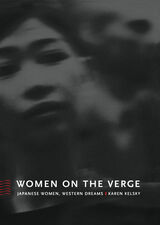
A collection that resets the terms of interpreting the Pauline letters
Interpretation of Paul's letters often proves troubling, since people frequently cite them when debating controversial matters of gender and sexuality. Rather than focusing on the more common defensive responses to those expected prooftexts that supposedly address homosexuality, the essays in this collection reflect the range, rigor, vitality, and creativity of other interpretive options influenced by queer studies. Thus key concepts and practices for understanding these letters in terms of history, theology, empire, gender, race, and ethnicity, among others, are rethought through queer interventions within both ancient settings and more recent history and literature.
Features:
- New options for how to interpret and use Paul's letters, particularly in light of their use in debates about sexuality and gender
- Developing approaches in queer studies that help with understanding and using Pauline letters and interpretations differently
- Key reflections on the two "clobber passages" (Rom 1:26-27 and 1 Cor 6:9) that demonstrate the relevance of a far wider range of texts throughout the Pauline corpus

The Verge of Philosophy is both an exploration of the limits of philosophy and a memorial for John Sallis’s longtime friend and interlocutor Jacques Derrida. The centerpiece of the book is an extended examination of three sites in Derrida’s thought: his interpretation of Heidegger regarding the privileging of the question; his account of the Platonic figure of the good; and his interpretation of Plato’s discourse on the crucial notion of the chora, the originating space of the universe.
Sallis’s reflections are given added weight—even poignancy—by his discussion of his many public and private philosophical conversations with Derrida over the decades of their friendship. This volume thus simultaneously serves to mourn and remember a friend and to push forward the deeply searching discussions that lie at the very heart of that friendship.
“All of John Sallis’s work is essential, but [this book] in particular is remarkable. . . . Sallis shows better than anyone I have ever read what it means to practice philosophy on the verge.”—Walter Brogan, Villanova University

In exploring the promises, limitations, and contradictions of these “occidental longings,” Women on the Verge exposes the racial and erotic politics of transnational mobility. Kelsky shows how female cosmopolitanism recontextualizes the well-known Western male romance with the Orient: Japanese women are now the agents, narrating their own desires for the “modern” West in ways that seem to defy Japanese nationalism as well as long-standing relations of power not only between men and women but between Japan and the West. While transnational movement is not available to all Japanese women, Kelsky shows that the desire for the foreign permeates many Japanese women’s lives. She also reveals how this feminine allegiance to the West—and particularly to white men—can impose its own unanticipated hegemonies of race, sexuality, and capital.
Combining ethnography and literary analysis, and bridging anthropology and cultural studies, Women on the Verge will also appeal to students and scholars of Japan studies, feminism, and global culture.
READERS
Browse our collection.
PUBLISHERS
See BiblioVault's publisher services.
STUDENT SERVICES
Files for college accessibility offices.
UChicago Accessibility Resources
home | accessibility | search | about | contact us
BiblioVault ® 2001 - 2024
The University of Chicago Press









